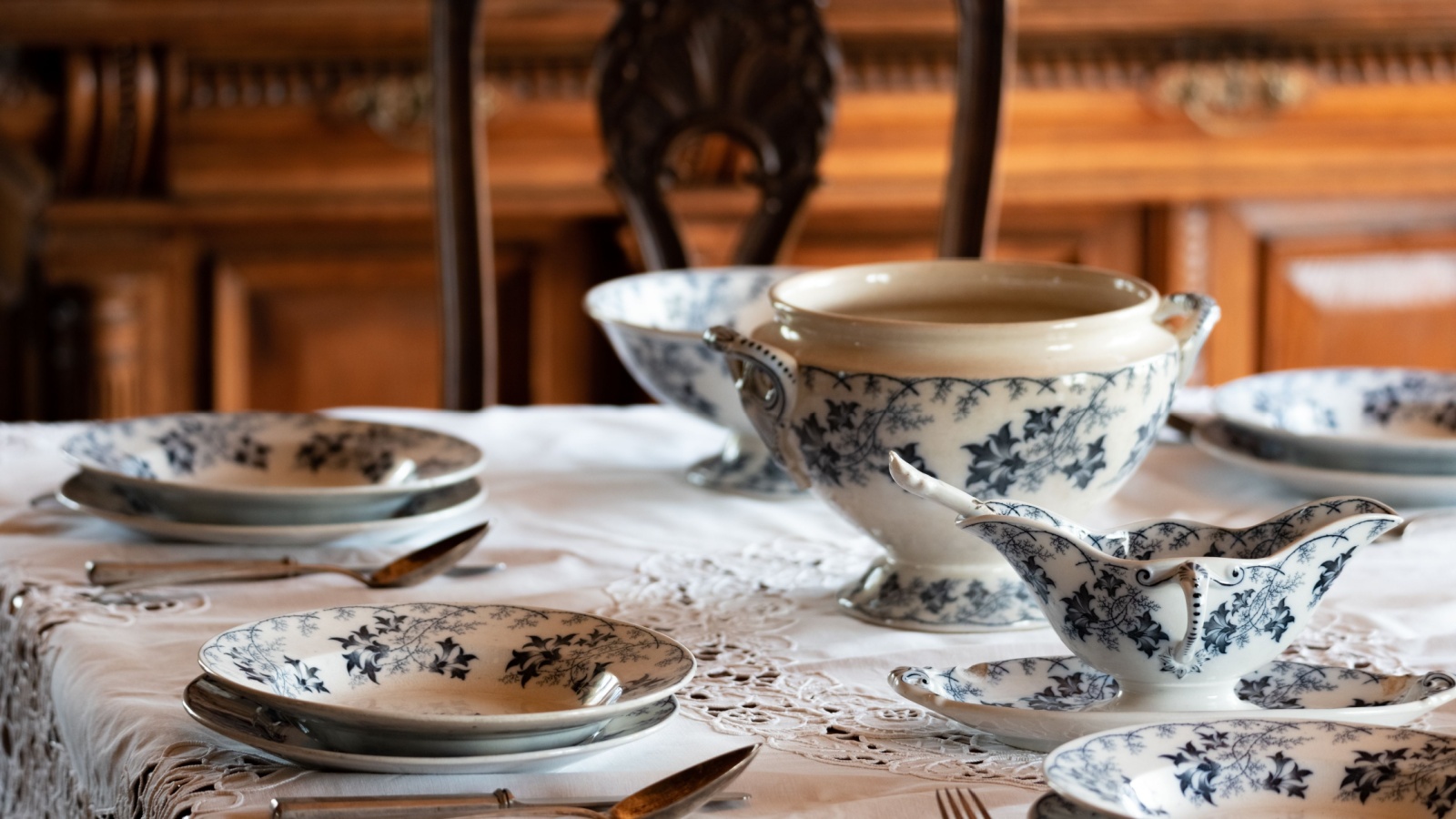Canadian households are full of traditions, but not all of them have kept pace with modern living. Some rules made sense decades ago when lifestyles were different, but today they can feel outdated or unnecessary. From strict routines to quirky customs, many families still hold on to practices that may no longer serve them. These rules often reflect cultural habits, generational lessons, or simply the way things have always been done. Here are 19 outdated household rules Canadians still follow:
No Shoes in the House, Ever

While removing shoes indoors is practical in snowy Canadian winters, some households enforce it year-round with rigid strictness. Guests may feel awkward, especially in summer, when clean shoes pose little risk. The tradition often comes from wanting to keep floors spotless, but today, with durable flooring and easy-to-clean materials, the rule feels less critical. Many Canadians still uphold it as a sign of respect, even if it occasionally inconveniences visitors. It is a household standard rooted in good intentions, but one that might be relaxed without much harm in certain contexts.
Dinner Must Be at 6 p.m. Sharp

In many Canadian families, dinner was historically a set event where everyone gathered at the table at exactly 6 p.m. While the routine promoted togetherness, modern schedules make it nearly impossible. With varied work shifts, extracurricular activities, and commuting, few households can realistically stick to this rigid timeline. Yet, some still insist on it, even if it adds stress. Today, flexibility is often more valuable than punctuality, with many families preferring shared meals whenever schedules align. The tradition reflects past norms but doesn’t always fit into the fast-paced, unpredictable rhythm of modern Canadian life.
Children Must Be Seen, Not Heard

Older Canadian households sometimes operated under the rule that children should remain quiet during adult conversations. Though rooted in discipline and respect, this standard often silenced kids rather than encouraging their voices. Many families still echo this sentiment, whether in subtle or direct ways, but modern parenting emphasizes communication, expression, and confidence-building, making this rule outdated. Today’s households recognize the importance of children sharing ideas at the table or in family discussions. While respect remains key, muting kids entirely doesn’t reflect the values of fostering open dialogue in Canadian families anymore.
Eat Everything on Your Plate

This long-standing rule came from times when food waste was a serious concern, especially during wartime or lean years. Many Canadian parents still urge kids to clean their plates, even when they’re full. The idea was to instill gratitude and prevent waste, but it sometimes encourages overeating instead. Modern nutrition emphasizes listening to hunger cues and portion control, making the rule less relevant. While it’s important to value food, forcing every last bite can create unhealthy eating habits. Canadians may benefit more from learning to balance their eating habits, practice mindful eating, and appreciate food without pressure.
No Talking About Money at the Table

For generations, Canadians were taught that money talk was inappropriate in family settings, especially at meals. This rule comes from the idea that finances are private, even taboo. But avoiding the subject often leaves younger generations unprepared for real-world financial responsibility. Today, many households are rethinking this rule, encouraging open conversations about saving, debt, and budgeting. While it’s still wise to keep dinnertime positive, completely avoiding financial topics feels outdated. Families now recognize that money awareness is crucial, and the dinner table can be an excellent place to learn and share.
Laundry Only on Weekends

In many Canadian homes, the washing machine was reserved for Saturdays or Sundays, a holdover from times when laundry was an all-day event. While it made sense when households were busier during weekdays, today’s flexible schedules and modern appliances make this rule unnecessary. Many families still follow it out of habit, crowding laundry into two days instead of spreading it out. With energy-efficient machines and off-peak electricity rates, doing laundry midweek is often more practical. Sticking to the weekend-only routine can feel restrictive, proving this is one household tradition worth reconsidering.
Guests Get the Fancy China

Traditionally, Canadian households kept a special set of dishes, often expensive or inherited, that were only brought out for company. Families would save these plates for rare occasions, while everyday meals used basic dishware. Today, the practice feels outdated, especially as modern families value casual, practical living, with the fancy china often sitting unused in cabinets, gathering dust. Many Canadians still cling to this rule, but younger generations prefer functional and versatile dishware for all meals. The ritual reflects past values of formality and hospitality, but in today’s kitchens, it often feels more symbolic than necessary.
Always Finish Homework Before Play

Canadian households often enforced a strict work before play rule, insisting that homework must be fully completed before any recreation. While discipline and responsibility are essential, this approach overlooks the benefits of balance. Studies suggest that breaks and playtime can improve focus and productivity, making the rule less practical today. Many families still follow it, fearing that flexibility leads to procrastination, but for modern kids juggling heavy workloads, downtime matters. A healthier approach combines structure with balance, demonstrating that sometimes, playing before work can actually yield better long-term results.
The Old-School Chore Chart

Households across Canada once relied on chore charts that divided tasks rigidly among children, often sticking to gender-specific roles where daughters did dishes, sons took out garbage. While responsibility is important, the traditional structure feels outdated. Many families still keep charts, but the division of labor is now less about gender and more about fairness. Even so, the idea of assigning every detail rigidly doesn’t always reflect today’s more flexible approach. Modern homes often prefer a shared responsibility approach with room for negotiation, suggesting that strict rules may no longer be the most effective household management strategy.
Phone Calls After 9 p.m. Are Rude

Decades ago, calling after 9 p.m. was considered intrusive in Canadian households. With landlines, late calls often meant bad news. Many families still instinctively avoid evening phone calls, though smartphones and messaging apps make communication far less disruptive. Today, texting or emailing is often the norm, regardless of time, and calling is increasingly rare. While respecting others’ schedules is important, this strict curfew on communication feels outdated. Modern lifestyles allow for flexible hours, and technology gives people more control over when and how they respond, making this old rule largely unnecessary.
Always Make the Bed Immediately

For generations, Canadian households treated bed-making as a daily ritual of discipline and order. Parents often insisted it be done right after waking up, no excuses. While a tidy bed looks nice, modern life is more flexible, and many people see it as a low-priority task. Some argue that leaving the bed unmade actually helps air out sheets. Despite this, many Canadians still enforce the rule, often out of habit rather than practicality. While there’s nothing wrong with a neatly made bed, making it mandatory every single morning feels increasingly outdated in today’s relaxed lifestyles.
No TV During Dinner

In countless Canadian homes, watching television at dinnertime was strictly forbidden, with meals meant for conversation. This rule stemmed from concerns about distraction and family bonding. While screens can certainly detract from meaningful interaction, modern households often juggle busy schedules, making shared meals rare. Sometimes, a family watching the news or a show together over dinner is bonding in its own way. Many still enforce the no-TV rule, but it feels rigid in an age when entertainment and mealtime often overlap. Balance, rather than strict bans, may better reflect today’s realities.
Always Say “Yes” to Seconds at Grandma’s

For decades, Canadian families taught kids that refusing a second helping of food, especially at grandma’s table, was rude. The rule stemmed from hospitality traditions and a culture of abundance, where eating more showed appreciation. Today, with growing awareness of portion control and health, forcing second servings isn’t always wise. Many households still insist out of politeness, even when guests are full, and while well-intentioned, the practice can encourage overeating or guilt. Respecting hospitality doesn’t have to mean overeating; gratitude can be shown through conversation, compliments, and time spent together, rather than always taking seconds.
Lights Off the Second You Leave a Room

Turning off lights immediately after leaving a room has been a strict rule in many Canadian households, drilled into kids as an energy-saving measure. It made sense decades ago when electricity costs were high and incandescent bulbs consumed a lot of power. Today, with energy-efficient LED lighting, the impact of leaving lights on briefly is minimal. Still, many families follow this rule out of habit, often scolding children for forgetfulness. While saving energy remains essential, the urgency of this old rule isn’t as critical, especially with smart lighting systems now making the process easier without strict enforcement.
Eat Dessert Only After Finishing Dinner

The “no dessert before dinner” rule has been a staple in Canadian households for generations. Parents used it as leverage to ensure children ate balanced meals before indulging in sweets. While it’s a reasonable guideline, it can also create an unhealthy relationship with food by framing dessert as a reward. Today, nutritionists often recommend moderation rather than strict sequencing. Some modern families mix it up, allowing small treats alongside meals or occasionally skipping the rule altogether. While dessert after dinner remains common, treating it as an ironclad rule feels outdated in a culture shifting toward mindful eating.
Sunday as Strict Family Day

For decades, Canadian families treated Sundays as sacred family days, with no exceptions. Shops were closed, kids stayed home, and the day revolved around church or family meals. While the tradition fostered togetherness, today’s busy schedules and changing values make it less practical. Many still cling to the rule, insisting that Sundays remain free from outings with friends or solo activities. However, with more people working weekends and pursuing flexible lifestyles, enforcing family-only Sundays feels outdated. Quality time is important, but modern families are learning it can happen on any day, not just Sundays.
Clothes Must Be Ironed Before Wearing

In many Canadian homes, stepping out in wrinkled clothes was once unthinkable. Parents insisted that everything, from school uniforms to casual wear, be ironed before leaving the house. This rule stemmed from a time when appearance was linked strongly to respectability. Today, with wrinkle-free fabrics, casual dress codes, and modern steamers, the need to iron everything has faded. Still, some households hold fast to the tradition, viewing ironing as a sign of care and discipline. While it’s useful for special occasions, insisting on ironing every item of clothing daily feels unnecessary in today’s fast-paced, casual world.
No Snacks Before Dinner

Canadian parents often enforced a strict ban on snacks before dinner, insisting it would spoil appetites. While the rule made sense in households serving large family meals at set times, it doesn’t fit modern routines where dinners are later or less structured. Many Canadians still follow the tradition, but it can feel rigid, especially for children who require small, regular meals to maintain energy. Nutritionists now recognize that balanced snacks are healthy, not harmful. Instead of outright bans, modern households are shifting toward healthy snack options that complement, rather than replace, dinner.
The House Must Be Perfectly Clean Before Guests Arrive

For generations, Canadian households scrambled to deep-clean before anyone visited, no matter how casual the visit. Parents often stressed spotless floors, dust-free shelves, and immaculate kitchens. While cleanliness is important, the rule often created unnecessary stress, especially for busy families, yet many Canadians still cling to it, fearing judgment from guests. Today, social norms are shifting toward valuing comfort and authenticity over perfection, and friends often prefer a relaxed environment rather than a museum-like home. The tradition reflects old standards of hospitality, but in modern times, it may create more anxiety than genuine warmth.
21 Products Canadians Should Stockpile Before Tariffs Hit

If trade tensions escalate between Canada and the U.S., everyday essentials can suddenly disappear or skyrocket in price. Products like pantry basics and tech must-haves that depend on are deeply tied to cross-border supply chains and are likely to face various kinds of disruptions
21 Products Canadians Should Stockpile Before Tariffs Hit
